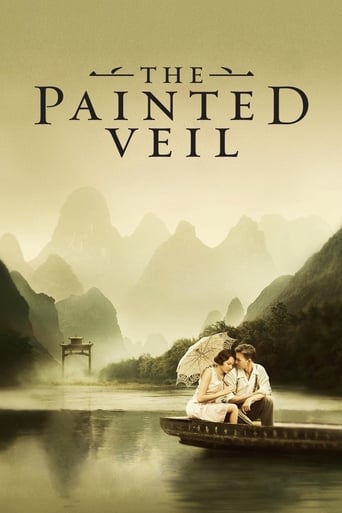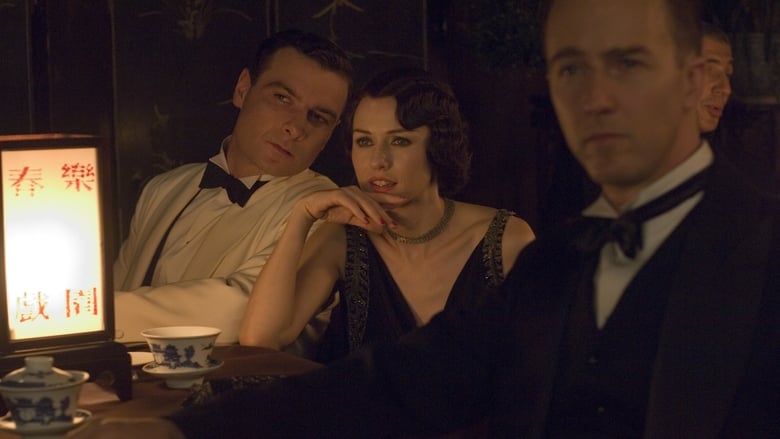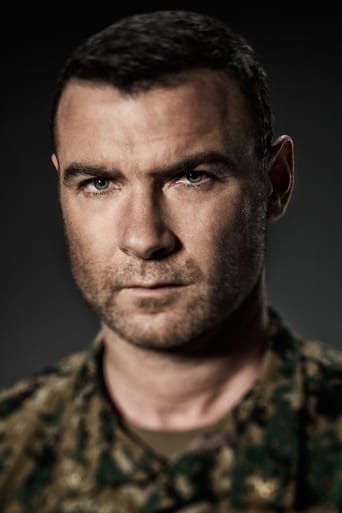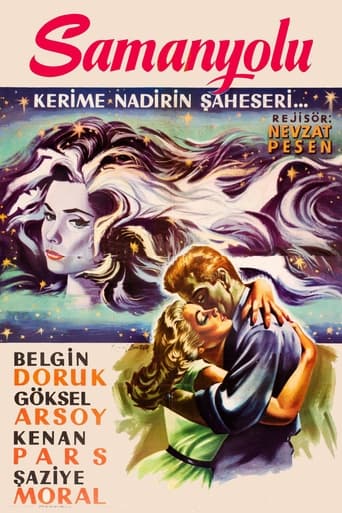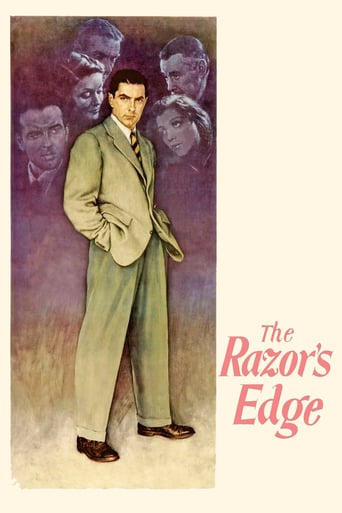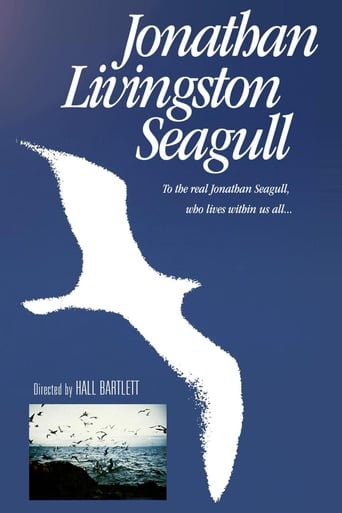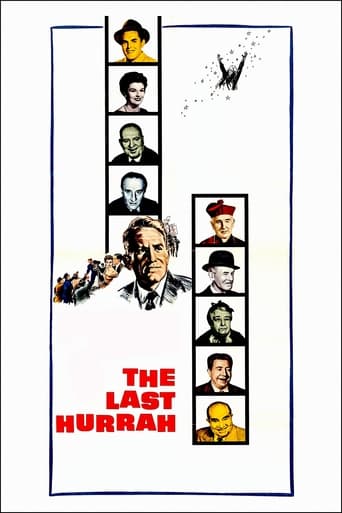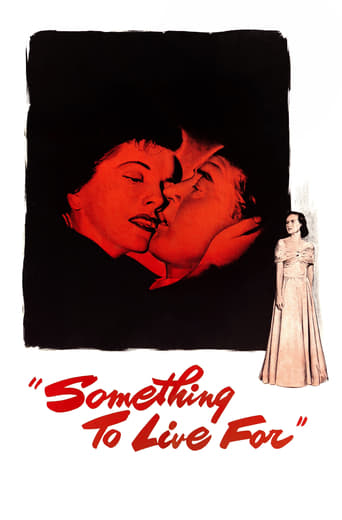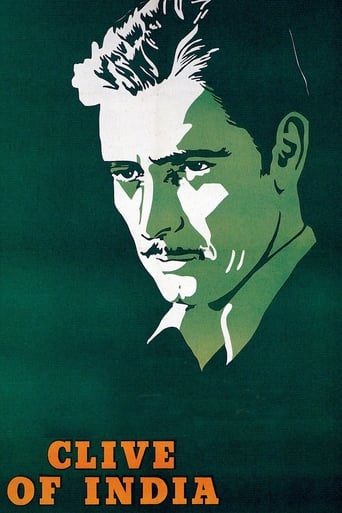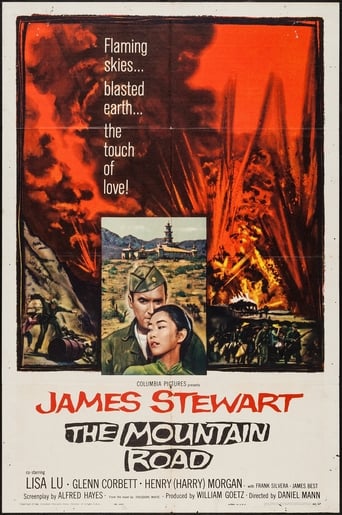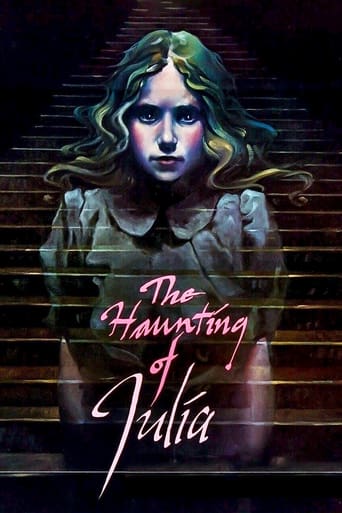The Painted Veil (2006)
A British medical doctor fights a cholera outbreak in a small Chinese village, while also being trapped at home in a loveless marriage to an unfaithful wife.
Watch Trailer
Cast


Similar titles
Reviews
hyped garbage
A Disappointing Continuation
Unshakable, witty and deeply felt, the film will be paying emotional dividends for a long, long time.
All of these films share one commonality, that being a kind of emotional center that humanizes a cast of monsters.
This film is the result of a partnership between the US and China. The script is a cheap romance, in which a futile girl marries without love and betrays her husband, a doctor who truly loves her. From there, they live a marriage that only exists formally and things get worse when they go to a secluded hamlet in China, where an epidemic of cholera broke out. The country's political situation will also cause problems, as China, recently transformed into a republic with the deposition of the last emperor, becomes a troubled country, with internal conflicts and a huge aversion to foreigners.The plot adapts to the cinema an absolutely dry and heartless novel, but it does so in a way that's sometimes a bit melodramatic. I understand the intention: to increase the dramatic effect, the writer sweetened the story and altered it a bit, to make it more digestible. That's good but, just like when making a cake, we have to be careful not to overdo the amount of sugar. Unfortunately, sometimes it abuses the sugar but, at the same time, the epidemic and the misery of the people help to bring the film to a more realistic background and cut through this excessive sweetness. Thus, everything becomes more balanced, harmonious and pleasant. The political part of the plot, however, seem to be totally out of context and never fit into the overall story. I say this because this didn't make any difference in the story itself. It's totally dispensable. What happened here? Did the writer decided not to develop this subplot or Chinese CP demand that the film speak of this issue in a sort of political-historical revisionism? If the later was the true, it was something that did not really interest. China, however it tries to look like a westernized country, will only be truly modern with free and multiparty elections, a free press and freedom of opinion. None of these things exist behind the polluted and ultra-modern image that China likes to show us, and there is no smoke curtain strong enough for the Chinese dictatorship to hide that.Edward Norton and Naomi Watts are two well-known and talented actors. The two have already seen their names on the list of Oscar-nominated actors. They worked very well but Norton's character is more able of captivating public's affection, while she will have a long atonement ahead. Anyway, Watts was able to show the moral and psychological evolution of her character, and that was difficult even for a good actress. The remaining cast, unfortunately, is remarkably insignificant. Toby Jones is good enough but has little to do, as can Diana Rigg and Liev Schreiber. Better than them are the scenarios and cinematography. China has shown in this film some magnificent landscapes, which the film has been able to explore. The soundtrack has some excellent piano pieces of a mournful and sad tone, which harmonizes with the mists, disease and love affairs that are the core of the story itself.
I'm talking about the disease, not the woman, but she is dangerous as well. This is the second film version of the Somerset Maugham novel, already made as a classic film with Garbo, and now re-imagined as a film with Naomi Watts. She's presented as a selfish but unhappy woman, marrying disease researcher Edward Norton simply to get away from her harridan of a mother. But loveless marriage to the distant Norton brings her into the arms of the already married Liev Schreiber, resulting in an ugly confrontation with her husband and a possible farewell with her lover. Destiny takes her into the cholera ridden mountains of China where the Scarlet O'Hara like Watts must grow up quickly as she faces not only suffering from the dressed disease but a revolution as well filled with plenty of violence.Stunning photography brings a nearly century old China to life, like many other non-white parts of the world facing a hatred of whites for their seemingly obsessive plans to rule the world and lord over every nationality. Toby Jones is excellent as Norton's right hand man, and Diana Rigg provides wisdom and insight as a missionary nun who defends the Catholic church against the Church of England raised Watts by claiming it is obvious that her faith has taught her to believe pretty much in nothing. The Chinese characters are presented as wise but proud and loyal to old beliefs, with Rigg pointing out to Watts one young girl who adamantly refuses to be baptized, reminding me audience of the rich faiths outside of Christianity which are as godly as what a good majority of the world professes to believe. It took me a while to be emotionally drawn into this film as Watts, for much of the first half, really isn't all that likable, certainly not at all sympathetic. For that matter, neither are Norton or Schreiber. But it's a situation of lost souls needing to be re-found and for total atonement to be brought in to play. The stunning landscapes are further dramatized by a stunning musical score that is never over the top or intrusive. This is a top notch drama that remains epic in size, personal in heart, and strong in spirit. No masterpiece, but not worth missing, either. The ending is one that is a true triumph of the spirit over selfishness and a shining example of what it means to really grow up.
This is one of those movies that should be seen on the big screen because the photography is totally beautiful and much of the movie was shot on location in China (Beijing, Guangxi, and Shanghai) rather than on the MGM back lot of the 1934 version. In size and scope, this new version of W. Somerset Maugham's novel far outshines the 1934 version with Greta Garbo and Herbert Marshall in the leading roles.Also, the characters of Jack Townsend, Waddington, and convent's Mother Superior seem more fully developed. There is enough of a change between story the lines of the 1934 and 2006 movies—particularly at the beginning and the end--that it left me wondering which version was more faithful to Maugham's novel.I have read the novel, but it has been a while.This version starts in London where bacteriologist, Walter Fane (Edward Norton), awkwardly passes through Kitty's home, with Walter and Kitty (Naomi Watts) barely speaking to each other. The two have totally different personalities, lifestyles, and outlooks. In fact, we barely have a clue as to how they EVER got together, except as a marriage arranged by her parents to get her out of the house. This portion of the story is mainly relayed through flashbacks from Kitty's present life in China to her past life in London. While Kitty is flirtatious and bored in China, Walter so socially backward and devoted to his work that the two barely speak to each other, even after their marriage.Kitty's endless ennui is only relieved by an affair with the couples' 'married friend,' Charlie Townsend (Liev Schreiber). When Walter overhears them together, he says nothing about it. When, he is called to go far into the Chinese inland to manage a raging cholera epidemic, he tells his wife to pack their things. When she refuses to go through the hardship with him, he tells her that he will immediately begin divorce proceedings. After being rebuffed by the Townsend's caddishness, she has no place to go and nothing left to do. She must accompany Walter.Once in the remote village, her life is changed by the epidemic, the poverty, the anti-Eurpoean feelings of the Chinese towards them, their fellow Englishman, Waddington (Toby Jones), the orphans and sick in the convent, and the convent's Mother Superior (Diana Rigg). She watches her husband's hopeless battle against poverty, disease, and local resistance from both the civilians and the military that is assigned to protect them. Her attempts to help, in some way, are met with her husband's rebuff and the Mother Superior's counsel. However, the couple's future depends not only her change but on Walter's ability to forgive her and cope with the hostile atmosphere.This movie combines a good story on a grand canvas. The nature of this drama often depends on restrained acting. No where is this more apparent than with Edward Norton's ability to relate his apparent maladroitness together with his sardonic nature in such a laconic fashion. Yet, Norton is able to do this very well.
Walter Fane decides to punish his wife, Kitty, for having married him. Marry in haste, repent at leisure, as a wise man once said. A woman, who could well have been a contemporary of Kitty Fane, once told me that Somerset Maugham had a better understanding of the differences between male and female mentality than any other writer she had ever read. Whether this had anything to do with his homosexuality I really couldn't say, but it struck me as an unusually interesting observation. The portrayal of both sides of the Fane couple in this film impressed me as exceptional. This was not only due to the writing but to the superlative performances and direction. Both parties, as well as Waddington, gave immensely nuanced turns. I knew couples exactly like this, but somehow their depiction here gave me a deeper insight into the nature of their relationship than even the reality. Astonishingly, Norton impressed as more English than the English.The setting in the China of the 1920s and '30s was also remarkably fine. Checking out this production on Wikipedia, I was taken aback by the lukewarm reception it had been given on its release by critics in America, in the New York and Los Angeles Times newspapers, and Variety. The extraordinary effort that had clearly been put into its production had apparently gone unrecognized. The reviews seem uniformly obtuse. There must be a culture and generation gap here. For Englishmen of a certain age and background the film is an achievement of pinpoint accuracy, and devastating irony. Perhaps there's something uniquely British about it, in spite of Norton being American. A deep-rooted appreciation of the emotional isolation of colonial life, its exile and sacrifices.

